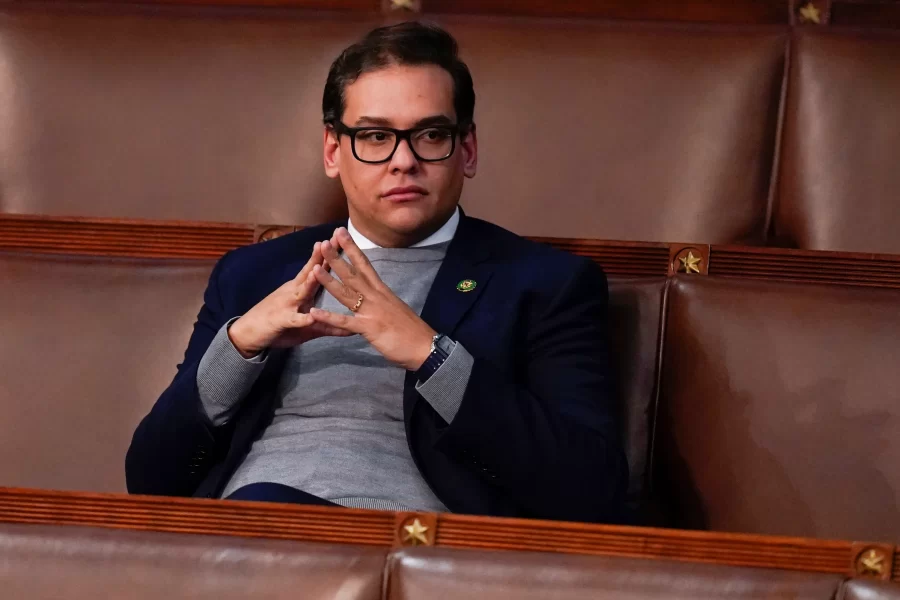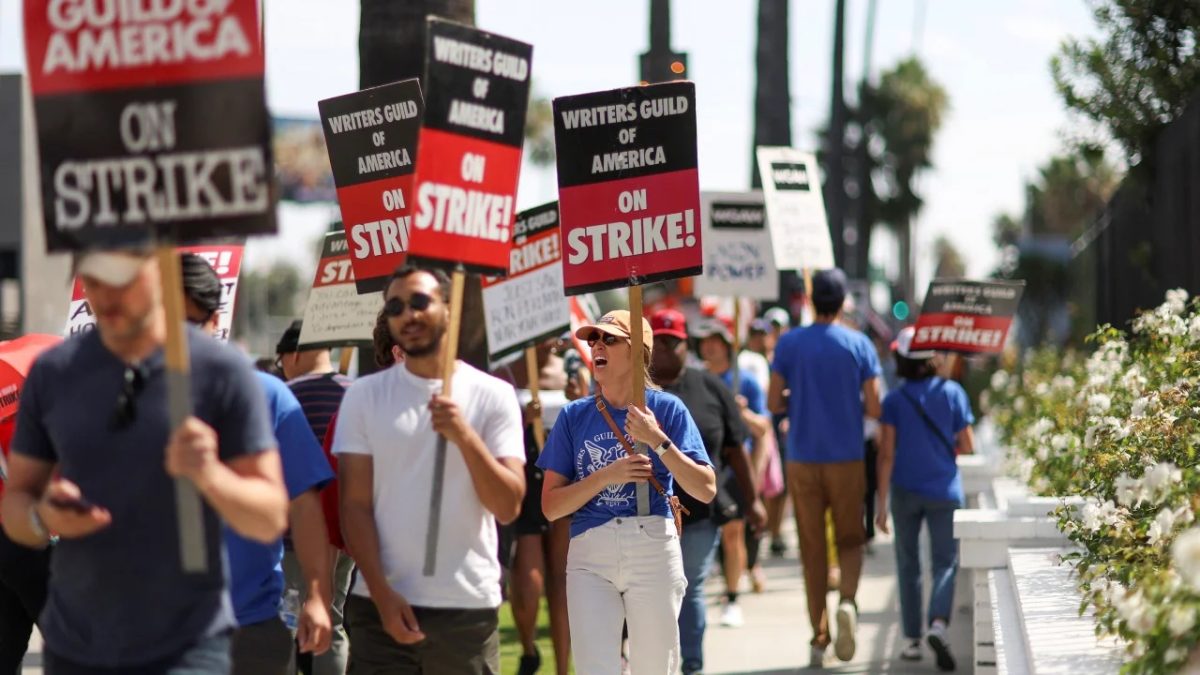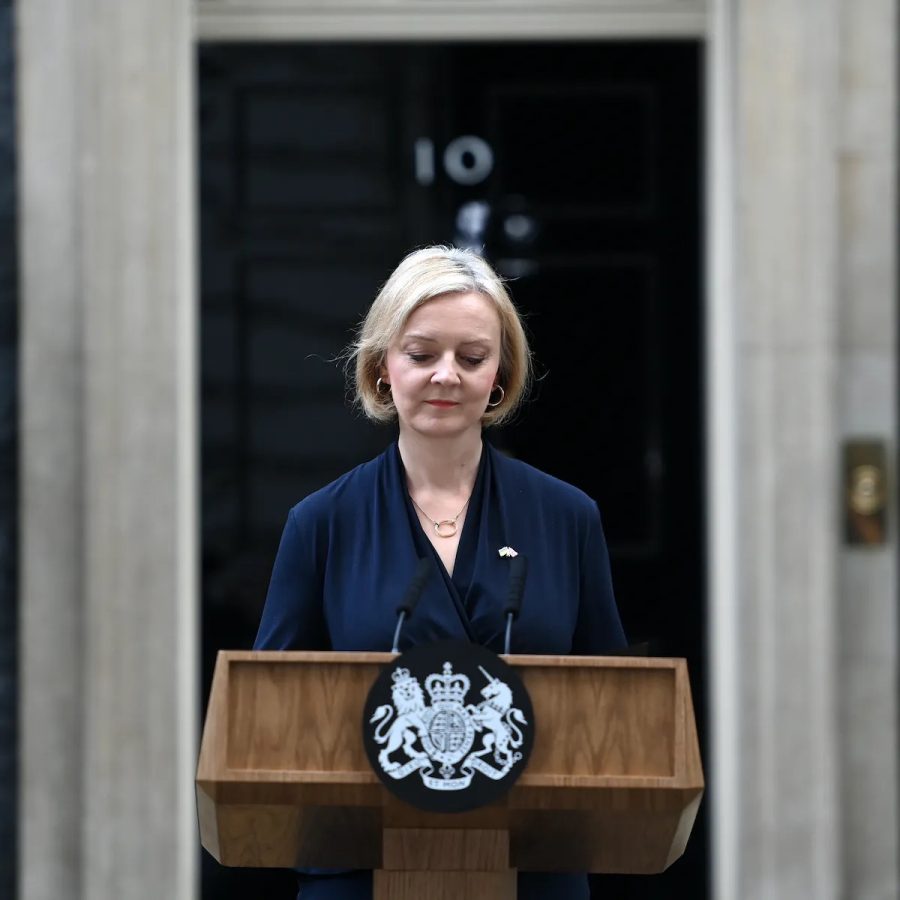Liz Truss’ Fall from Grace
Weeks after her resignation, Liz Truss is still under fire.
Liz Truss resigns as prime minister
November 7, 2022
Liz Truss is the shortest-serving prime minister of Downing Street in 300 years of British history. After a month and a half of controversial and unpopular leadership, Truss waved goodbye to her political life. Truss’ rapidly growing bad reputation led her fellow party lawmakers to publicly contemplate plans to replace her. During her leadership, Truss went through a political crisis as she attempted to completely reorient the government’s economic plan by slashing taxes without thinking about the outcome of the decision and how it would be paid.
By the end of her leadership, Truss’ net favorability swiftly went down, standing at minus 70 percent. About two and a half weeks into her leadership, Kwai’s Kwarteng, her finance minister, released valuable information about the country’s economic strategy, assuring to slash taxes for the highest earners and most prominent corporations —without mentioning plans to pay for it. After Truss’ resignation, elections to pick a new prime minister were held and former finance minister Rishi Sunak won the race, making him the first British Asian to get this role.
During his first political statement, Sunak assured changes in the country’s “profound economic challenge” and added that he would make the country’s unity a priority. Truss’ short time as prime minister caused substantial problems in the country’s interest rates and the pound plunged, making markets attentive to the government’s possible spending cut and tax increase. It will be difficult to complete, as he takes leadership in such a heavy economic crisis after Truss’ resignation.

























